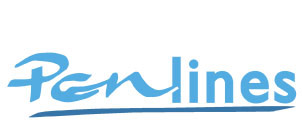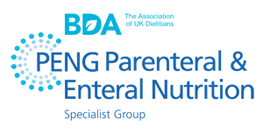Hot topics

How did I use my £250
from the PENG award 2017?
Key learning points from the International Congress of Renal Nutrition and Metabolism 2018
Bruno Mafrici, Lead Renal Dietitian, Nottingham University Hospitals NHS Trust
In 2017, I applied for the PENG Award by submitting a service evaluation looking at vitamin A provision and levels in patients who were long-term artificially fed on haemodialysis. The Award was for a £500 pounds bursary and I was awarded £250 as I came in joint third position.
Applying to the Award was simple. It required me to submit an abstract related to nutrition support in any clinical area. I work predominantly with patients with kidney disease and my team decided to evaluate our dietetic practice in patients on haemodialysis who received their full nutritional need via artificial nutrition for over 30 days. Specifically, we wanted to assess the provision of vitamin A with the serum level of vitamin A, which are known to be elevated in patients on haemodialysis, incorporating factors that influence interpretation of serum levels of vitamin A.
This was a retrospective service evaluation and was submitted as an abstract. If you have not done an audit or service evaluation before you can get support from the PENG Committee, who are able to guide dietitians during this process. If selected as a PENG Award winner, you will have an opportunity to share your work by presenting your work at the PENG Study Day.
The Award can be used for any developing activities and I used this towards the expenses for attending the International Congress for Renal Nutrition and Metabolism (ICRNM) in Italy, at the end of June 2018.
The ICRNM 2018 allowed me the opportunity to share our renal dietetic work conducted at the renal unit in Nottingham, as well as to listen to the recent evidence base for renal dietetic practice. Attending this international event also allowed me to create some key links with international dietitians from the USA, Australia and New Zealand, where we shared practice and expertise.
The ICRNM 2018 introduced the new Kidney Disease Outcomes Quality Initiative (KDOQI) Nutrition in Chronic Kidney Disease (CKD) Clinical Practice Guidelines, which are due to be published in 2019. These will focus on all stages of CKD, including transplantation.
In addition, the conference focused on newer topics such as:
- How CKD alters intestinal microbial flora1
- How microbiome alteration and the leaky gut epithelial barrier in CKD results in systematic translocation of bacterial derived uremic toxin2
- The importance to consider constipation status in patients with CKD as constipation status, and its severity, are associated with progressive eGFR decline, independently of known risk factors.3
Although these are interesting and relevant topics for the nutritional management of patients with CKD, there is still a lack of evidence of how to translate these initial findings into dietetic practice, and their relevance to patient outcomes.
The ICRNM 2018 attempted to define sarcopenia, cachexia and protein energy wasting. It underlined the importance of focusing on muscle wasting and not just on body weight. Measuring trend of muscle strength should be part of routine practice nowadays and, from a clinical point of view, they are seen as more important than measuring muscle mass. The conference referred to the now famous PURE study on the clinical relevance of measuring grip strength in clinical settings.4
There were interesting lectures on protein requirements in the elderly, with and without CKD, and on patients on haemodialysis. Of particular interest:
- One of the speakers underlined the fact that there is insufficient evidence that increasing protein provision to 1.5g per kg body weight in the elderly can stimulate muscle protein synthesis, raise muscle mass and strength and guidelines should be interpreted with caution
- The role of nucleolar protein 66 (NO66) was briefly introduced (and this was a new concept for me). NO66 is a protein which suppresses protein synthesis in the skeletal muscles. Speakers have hypothesised that potential drugs aimed at blocking NO66 may improve muscles mass in the future
- A systematic review conducted by the Renal Nutrition Group (RNG) in 2013 was presented and referred to during the conference several times.5
I was also able to attend a section delivered by Dr Fiaccadori, who is an international speaker with an interest in nutrition in acute kidney injury (AKI). He presented the work of his team (which included an advanced practitioner dietitian) on using ultrasound techniques for muscle evaluation in AKI. Malnutrition is an independent risk factor for mortality in patients with AKI. A major problem in AKI, and in the acute setting, is the lack of an adequate tools for nutritional status evaluation at the individual level and for monitoring the effect of nutritional support.6 The team presented their reliability work by using ultrasound measurements of quadriceps muscle thickness as a method to assess nutritional support and how these measurements were not affected by the rapid weight changes due to fluid shifts during haemodialysis.7 The author acknowledged the weakness of this method – there is a lack of standardisation of measurement, protein provision and sedentary levels.
Additional key topics were discussed during the conference, some were directly related to nutritional support,
others were more renal focused. For example:
- The well-established role of exercise in patients on haemodialysis
- The changes in terminology from ‘new onset of diabetes after transplantation’ (NODAT) to ‘post-transplant diabetes’ (PTD), which has a cumulative incidence of 15-30% in the first year and 4-6%
1 year after kidney transplantation - The new area of incremental dialysis
- Protein energy wasting in cardio renal syndrome.
All the presentations can be accessed for free at: www.aristea.com/icrnm18/.
In summary, the PENG Award allowed me to attend this expensive event. In this current financial climate, the PENG Award, like other schemes available via other specialist group (such as the RNG or the British Dietetic Association), offers support to attend events like this one.
I would encourage any dietitian to apply for this type of Award. After all we have nothing to lose and,
if selected, lots to gain. I look forward to hearing who will be the PENG Award winners in 2018!
 References: 1. Vaziri ND, et al. (2013). Chronic kidney disease alters intestinal microbial flora. Kidney Int.; 83(2): 308-315. 2. Lau WL, et al. (2018). Altered microbiome in chronic kidney disease: systemic effects of gut-derived uremic toxins. Clin Sci (Lond).; 132(5): 509-522. 3. Sumida K., et al. (2017). Constipation and incident of CKD. JASN; 28(4): 1248-1258. 4. Leong DP, et al. (2015). Prognostic value of grip strength: findings from the Prospective Urban Rural Epidemiology (PURE) study. Lancet; 386(9990): 266-273. 5. Naylor HL, et al. (2013) British Dietetic Association evidence-based guidelines for the protein requirements of adults undergoing maintenance haemodialysis or peritoneal dialysis. J Hum Nutr Diet.; 26(4): 315-328. 6. Fiaccadori E, Regolisti G, Maggiore, U. (2013) Specialized nutritional support interventions in critically ill patients on renal replacement therapy. Curr Opin Clin Nutr Metab Care.; 16(2): 217-224. 7. Sabatino A, et al. (2017). Reliability of bedside ultrasound for measurement of quadriceps muscle thickness in critically ill patients with AKI. Clin Nutr.; 36(6): 1710-1715.
References: 1. Vaziri ND, et al. (2013). Chronic kidney disease alters intestinal microbial flora. Kidney Int.; 83(2): 308-315. 2. Lau WL, et al. (2018). Altered microbiome in chronic kidney disease: systemic effects of gut-derived uremic toxins. Clin Sci (Lond).; 132(5): 509-522. 3. Sumida K., et al. (2017). Constipation and incident of CKD. JASN; 28(4): 1248-1258. 4. Leong DP, et al. (2015). Prognostic value of grip strength: findings from the Prospective Urban Rural Epidemiology (PURE) study. Lancet; 386(9990): 266-273. 5. Naylor HL, et al. (2013) British Dietetic Association evidence-based guidelines for the protein requirements of adults undergoing maintenance haemodialysis or peritoneal dialysis. J Hum Nutr Diet.; 26(4): 315-328. 6. Fiaccadori E, Regolisti G, Maggiore, U. (2013) Specialized nutritional support interventions in critically ill patients on renal replacement therapy. Curr Opin Clin Nutr Metab Care.; 16(2): 217-224. 7. Sabatino A, et al. (2017). Reliability of bedside ultrasound for measurement of quadriceps muscle thickness in critically ill patients with AKI. Clin Nutr.; 36(6): 1710-1715.

